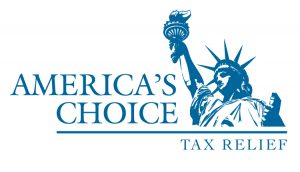Here’s a scenario that thousands of taxpayers across the country experience: You’re sitting at your desk filing your taxes using an online tax software, paper filing, or with an accountant.
After you review your papers for complete accuracy, you receive the dreaded notice: You. Owe. Taxes. Even after checking your taxes and statements twice, you come to the same conclusion. The number on your statement is beyond what you could afford at once. You speak with your friends, your accountant, read tax blogs, and they all tell you the same thing: “Make a payment plan with the IRS”.
Luckily for you, you learn that the IRS is flexible with the way you pay your taxes. There are various plans for you to choose from! The question you may be asking yourself is, “which is better for me?”
While the purpose of this payment plan blog is to discuss each payment plan type, you should definitely consider speaking with a tax professional about your options! Installment agreements only get you so far and you may qualify for better tax relief services that suit your financial status.
With that said, let’s dive in!

Short Term Payment Plan vs Long Term Installment Agreement
To get the basics out of the way, a tax payment plan is an agreement between you and the IRS that you will pay a specific amount every month to pay off your tax debt.
In exchange for your monthly payment, the IRS will not garnish your wages, take your property, or seize your bank accounts! So kind of them.
Of course, as you make these payments, interest and penalty fees will accrue until you owe zero dollars to the IRS.
Both plans have different eligibility requirements:
- Short-Term Payment Plan: You owe $100,000 or less in combined tax, penalties and interest, and you’ve filed all your tax returns
- Long-term Payment Plan: You owe less than $50,000 in combined tax, penalties, and interest.
Why A Short Term Payment Plan May Be Better For You
- No setup fee
- Allows you to use IRS Direct Pay (pay directly from your checking or savings)
- Usually no lien on your assets or property
A short term payment plan is perfect for those capable of paying their tax liability within 180 days. The faster you pay the IRS, the happier they are.
Why A Long Term Installment Agreement May Be Better For You
- You have significantly more time – up to ten years – to pay off your debt
- You can choose between automatic payments and manual payments such as credit/debit card, money order, or check.
Note: If you’re on a long-term payment plan, you must choose a payment amount that will pay off your debt within 120 months aka 10 years.
With this in mine, long term installment payments are ideal for those who can make smaller payments over time or who are a few years away from the Statute of Limitations expiration date.
There are heavy application fees so you must be accurate with your finance information or else you’ll have to pay them again when you apply a second time!
With a long term payment plan, it’s recommended that you discuss your application with a tax professional.
You don’t want to provide the IRS with inaccurate information. It’ll cause you more problems than you’d probably be willing to deal with.
You’ll receive helpful advice and a step by step plan from us! All with a money back guarantee if, due to our error, you don’t receive the promised tax relief.

Other Types of Payment Plans
Each taxpayer has different situations than the other. If you don’t qualify for a simple long term or short term payment plan, there are other options available. You may qualify for Partial Pay Installment Agreement or for conditional installment payments.
A payment plan with reduced tax liability. You must submit your financial statement to report your living expenses and income. You may qualify for a PPIA if you’re under financial hardship when you attempt to pay for the full balance.
- Conditional installment payments are reduced monthly payments but you must still pay your full tax balance over the course of six year, or by the time the collection statute expires (whichever comes first).
Speak With A Pro About Your Payment Plan
It’s better to speak to someone who has in-depth knowledge about the different payment plan options. An America’s Choice Tax tax professional oversees your application process, your financial history, and develops a strategy that most effectively benefits you. They may even see if you qualify for other tax relief other than a simple payment plan. The longer you postpone your taxes, the more you owe the IRS. From penalty to interest fees, your debt only piles up as time goes by. Contact America’s Choice to relieve you of your tax debt.
